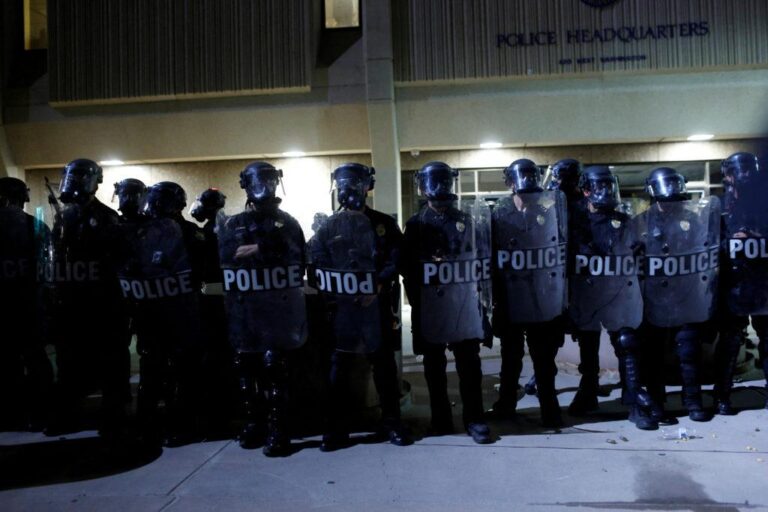Federal Investigation Reveals Civil Rights Breaches and Excessive Force by Phoenix Police
Federal Scrutiny Uncovers Civil Rights Violations Within Phoenix Police Department
A recent federal inquiry conducted by the Department of Justice (DOJ) has exposed significant civil rights infringements and the unlawful use of excessive force by officers within the Phoenix Police Department. This extensive investigation highlights not only isolated incidents but also deep-rooted systemic issues that have fostered an environment where misconduct has gone largely unchecked. The report points to critical shortcomings in officer training, supervision, and internal accountability systems, which have collectively undermined community trust and safety.
Among the primary issues identified are:
- Disproportionate application of force against minority populations
- Inadequate procedures for reviewing complaints of officer misconduct
- Opaque disciplinary processes lacking transparency
- Neglect in adopting previously recommended reforms
| Focus Area | Identified Problem | DOJ Suggested Action |
|---|---|---|
| Use of Force | Frequent incidents of unjustified excessive force | Enforce more rigorous use-of-force policies |
| Accountability | Deficient internal investigations | Create an independent civilian oversight board |
| Training | Absence of comprehensive de-escalation training | Implement mandatory, ongoing training programs |
Disproportionate Impact on Minority Communities: Patterns of Excessive Policing
The DOJ’s investigation reveals a disturbing pattern of unconstitutional policing tactics disproportionately targeting minority groups, especially African American and Hispanic residents of Phoenix. These communities have faced excessive physical force, unwarranted detentions, and racial profiling at rates far exceeding their demographic representation. The report exposes systemic lapses in oversight, with many complaints of misconduct either inadequately investigated or dismissed outright, perpetuating a cycle of abuse and mistrust.
Highlighted trends include:
- Unjustified use of physical force: Officers often resorted to violence in situations where it was not warranted.
- Disproportionate targeting of minorities: Statistical evidence shows minority groups are subjected to aggressive policing at significantly higher rates.
- Neglect of misconduct allegations: Numerous complaints were not properly examined, allowing violations to continue unchecked.
| Incident Type | Number of Cases | Percentage Involving Minorities |
|---|---|---|
| Excessive Force Complaints | 430 | 78% |
| Use of Restraint Techniques | 290 | 66% |
| Unresolved Investigations | 120 | 85% |
Community Reactions and Initiatives Addressing Policing Deficiencies in Phoenix
The DOJ’s revelations have ignited significant public outcry across Phoenix, with community organizations and civil rights advocates demanding swift and meaningful reforms. Town hall meetings, protests, and advocacy campaigns have become vital forums for residents to express their frustrations and push for systemic change. The collective response underscores the critical need to restore confidence in law enforcement and ensure equitable treatment for all citizens.
Community-driven efforts currently emphasize:
- Formation of independent civilian oversight bodies empowered with subpoena authority
- Comprehensive bias and de-escalation training for all police personnel
- Regular publication of detailed use-of-force data to enhance transparency
- Strengthening collaboration between police and marginalized neighborhoods to foster mutual understanding
| Initiative | Current Status | Anticipated Benefit |
|---|---|---|
| Civilian Oversight Board | Under Proposal | Improved Accountability |
| De-escalation Training | Ongoing Implementation | Reduction in Use of Force |
| Transparency Reports | Active | Enhanced Public Trust |
Strategic Recommendations: Enhancing Training, Oversight, and Transparency
The DOJ’s report advocates for a multifaceted reform approach centered on strengthening officer training, bolstering oversight mechanisms, and increasing transparency. Emphasis is placed on equipping officers with advanced skills in conflict resolution and de-escalation through scenario-based exercises and ongoing education on civil rights and ethical policing. Addressing implicit biases through sensitivity training is also a critical component to ensure fair treatment across all communities.
Equally important are reforms aimed at accountability and openness. The establishment of independent review boards, routine audits of body-worn camera footage, and the public release of use-of-force data are recommended to rebuild community confidence. The DOJ also calls for a clear, transparent disciplinary system with accessible public reporting tools to track progress and enforce consequences for violations.
- Annual mandatory retraining focused on civil rights and ethical conduct
- Expansion of civilian oversight commissions with legal authority to subpoena
- Deployment of state-of-the-art body camera technology for enhanced real-time monitoring
- Publicly accessible, user-friendly dashboards displaying use-of-force statistics and disciplinary actions
| Reform Category | Primary Initiative | Projected Outcome |
|---|---|---|
| Training | Scenario-based de-escalation drills | Decrease in excessive force incidents |
| Oversight | Independent civilian review boards | Heightened accountability |
| Transparency | Public use-of-force data dashboards | Strengthened community trust |
Final Thoughts
The Department of Justice’s findings regarding civil rights violations and unlawful excessive force by the Phoenix Police Department highlight enduring challenges in law enforcement accountability. As Phoenix confronts these issues, the momentum for comprehensive reforms and enhanced oversight is expected to grow. This investigation serves as a crucial call to action to rebuild public trust and ensure that policing practices fully respect and protect the constitutional rights of every resident.







